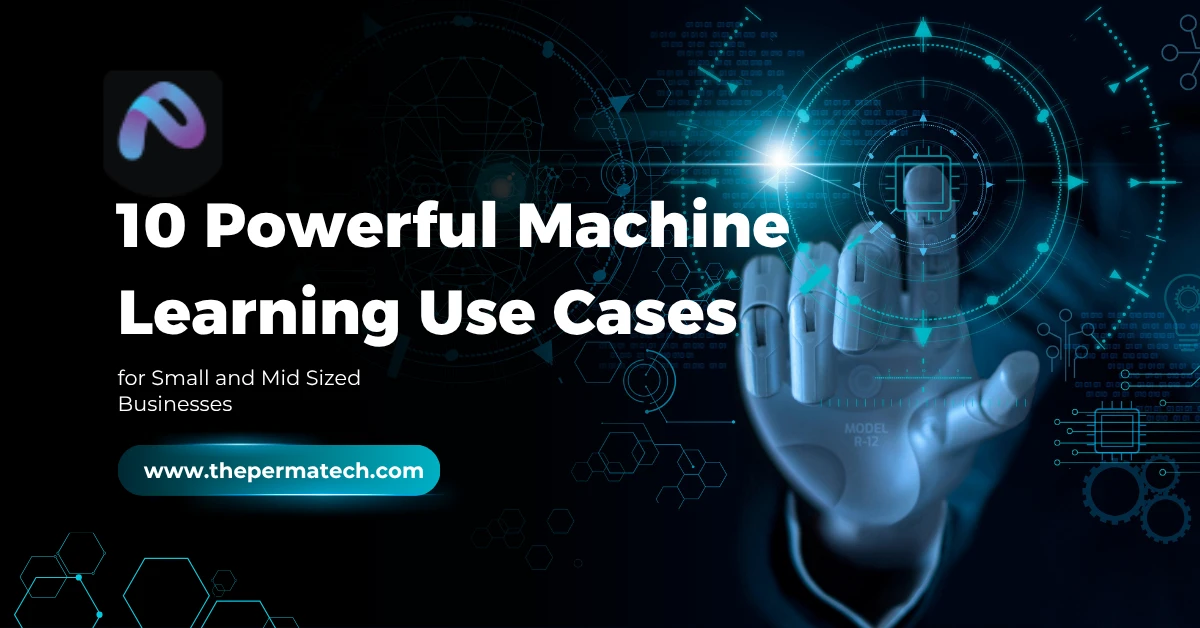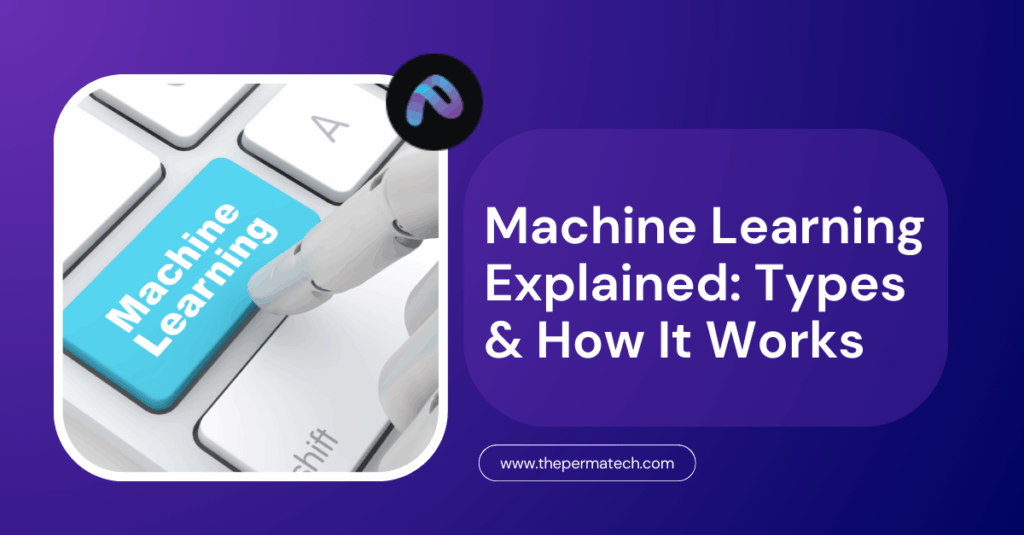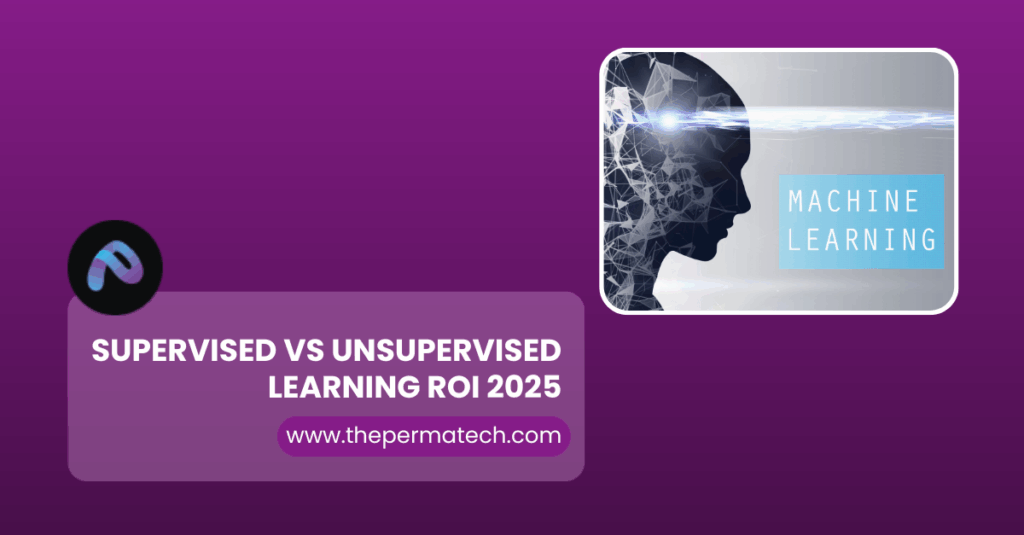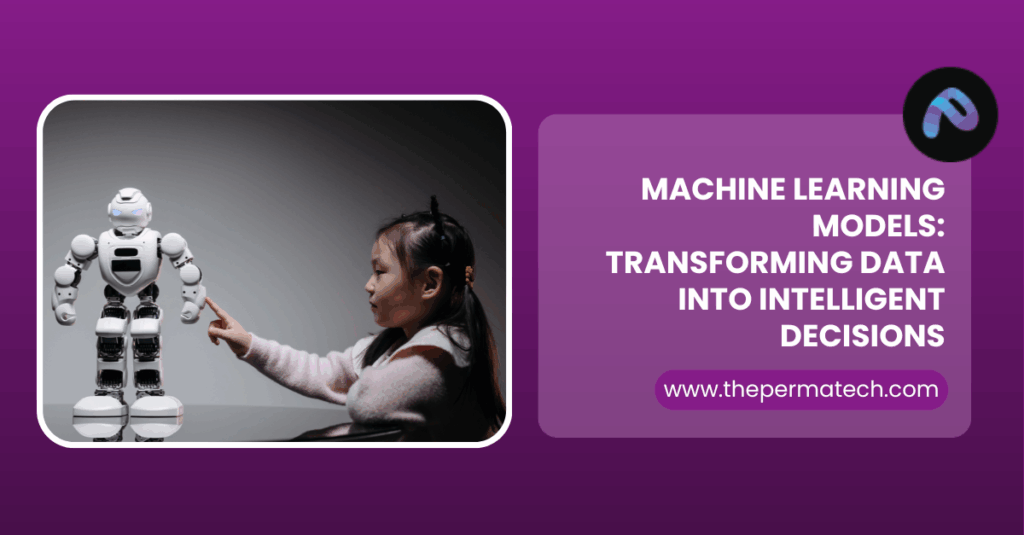In today’s rapidly evolving digital economy, machine learning (ML) is no longer the sole domain of tech giants. Small and mid sized enterprises (SMEs) are increasingly turning to machine learning to optimize operations, personalize customer experiences, and gain a competitive edge without breaking the bank.Thanks to affordable cloud platforms, open source libraries, and SaaS based ML tools, even resource constrained businesses can now harness the power of machine learning. In this blog, we’ll explore the top ML use cases that are driving measurable impact for SMEs across various sectors.
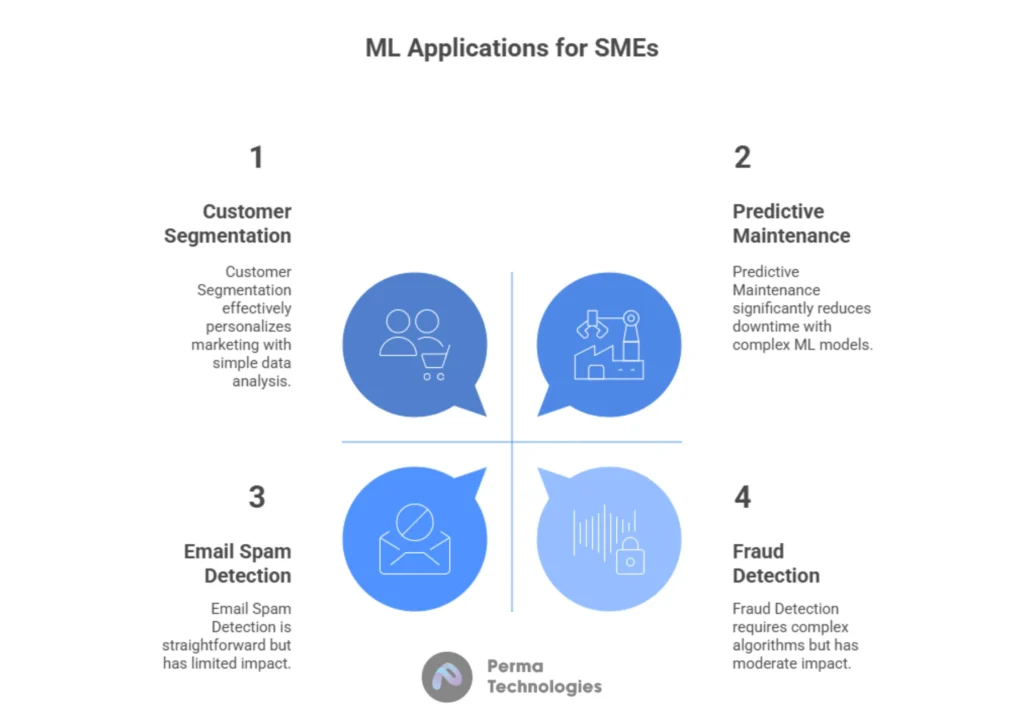
1. Customer Segmentation and Personalization
One of the most valuable applications of ML for SMEs lies in marketing. ML algorithms can analyze historical customer data such as purchase behavior, location, demographics, and browsing patterns to segment customers into actionable groups.
Use Case in Action:
A small e-commerce business can use ML based clustering to identify customer segments such as price sensitive shoppers, high value customers, or seasonal buyers. Once segmented, the business can personalize email campaigns, offer targeted promotions, or optimize website content based on user preferences.
Tools That Help:
- Mailchimp Predictive Segmentation
- HubSpot with ML based lead scoring
- Google Analytics with ML insights
2. Inventory Forecasting and Demand Prediction
Managing inventory is a common pain point for SMEs, especially those in retail, manufacturing, and distribution. Overstocking ties up capital, while understocking risks losing customers. ML models trained on historical sales, seasonality, and market trends can accurately forecast demand.
Use Case in Action:
A local fashion retailer uses ML algorithms to predict which product categories will perform best in upcoming months, adjusting procurement and pricing accordingly. This minimizes stock outs while avoiding excess inventory.
Tools That Help:
- Forecasting in Microsoft Azure ML
- Amazon Forecast
- Python libraries like Prophet and Scikit learn
3. Automated Customer Support with Chatbots
Chatbots powered by natural language processing (NLP) a subfield of ML are transforming how small businesses handle customer service. These bots can answer FAQs, guide customers through products, and even initiate support tickets.
Use Case in Action:
A mid sized logistics firm uses a chatbot on its website to handle inquiries about shipment status, delivery timelines, and return policies, reducing the volume of calls to the support team by over 40%.
Tools That Help:
- Google Dialogflow
- ChatGPT powered bots
- Tidio, Drift, or Intercom for SMEs
4. Fraud Detection and Risk Management
ML can be a game changer for SMEs dealing with financial transactions, especially in e commerce, fintech, and digital services. Algorithms can detect anomalies in behavior that indicate fraud such as unusual IP addresses, transaction volumes, or login attempts.
Use Case in Action:
A small online marketplace uses ML to monitor user behavior and detect potentially fraudulent transactions before they are completed, safeguarding both customers and sellers.
Tools That Help:
- Stripe Radar (built in ML fraud detection)
- Sift Science
- Custom models using Python & anomaly detection libraries
5. Predictive Maintenance for Equipment
For manufacturing SMEs or those relying on machinery, downtime is costly. ML can be used to analyze sensor data and usage logs to predict when machines are likely to fail before it happens.
Use Case in Action:
A mid sized food processing plant installs IoT sensors on its machines and uses ML models to monitor vibrations, temperature and run time. The system alerts maintenance teams before parts degrade, reducing unexpected downtime by 30%.
Tools That Help:
- IBM Maximo
- Azure IoT + ML
- TensorFlow-based custom predictive maintenance models
6. Churn Prediction
Retaining customers is more cost effective than acquiring new ones. ML can analyze customer behavior and identify which customers are likely to churn (stop doing business) based on interaction history, complaints, or declining usage.
Use Case in Action:
A SaaS provider serving small businesses builds a model that flags accounts showing early signs of churn such as low login frequency or unresolved support issues triggering targeted retention campaigns.
Tools That Help:
- Baremetrics
- Zendesk + ML plugins
- Custom churn models in Python or R
7. Email Spam Detection and Document Classification
Small businesses deal with a lot of email and document traffic. ML based classifiers can separate spam from valid messages, or automatically tag, sort, and extract data from incoming documents.
Use Case in Action:
A small legal consulting firm uses ML to auto sort client documents into categories (contracts, NDAs, invoices) and extract key metadata using named entity recognition.
Tools That Help:
- Google Cloud AutoML
- DocParser with ML plugins
- Open-source: spaCy, NLTK
8. Product Recommendation Engines
ML powers the recommendation engines used by large e commerce companies, but SMEs can use the same techniques to increase average order value and improve customer retention.
Use Case in Action:
A mid-sized bookstore recommends titles based on purchase history and browsing behavior, resulting in a 20% increase in upsells during checkout.
Tools That Help:
- Recombee
- Algolia Recommend
- TensorFlow Recommenders
9. Pricing Optimization
Machine learning models can dynamically adjust pricing based on demand, competitor prices, time of day, or customer type.
Use Case in Action:
A rideshare startup in a small city uses ML to optimize pricing during peak demand hours, ensuring driver availability while maintaining competitive rates.
Tools That Help:
- Dynamic pricing plugins in Shopify
- Python packages for regression modeling
- Google Cloud Vertex AI for real time ML inference
10. Hiring and Talent Management
ML can streamline HR processes such as resume screening, skill matching, and candidate ranking saving hours of manual work for small teams.
Use Case in Action:
An SME in the IT services industry uses a custom trained NLP model to parse resumes, matching applicants with open roles based on keywords and inferred skills.
Tools That Help:
Custom NLP with Hugging Face Transformers
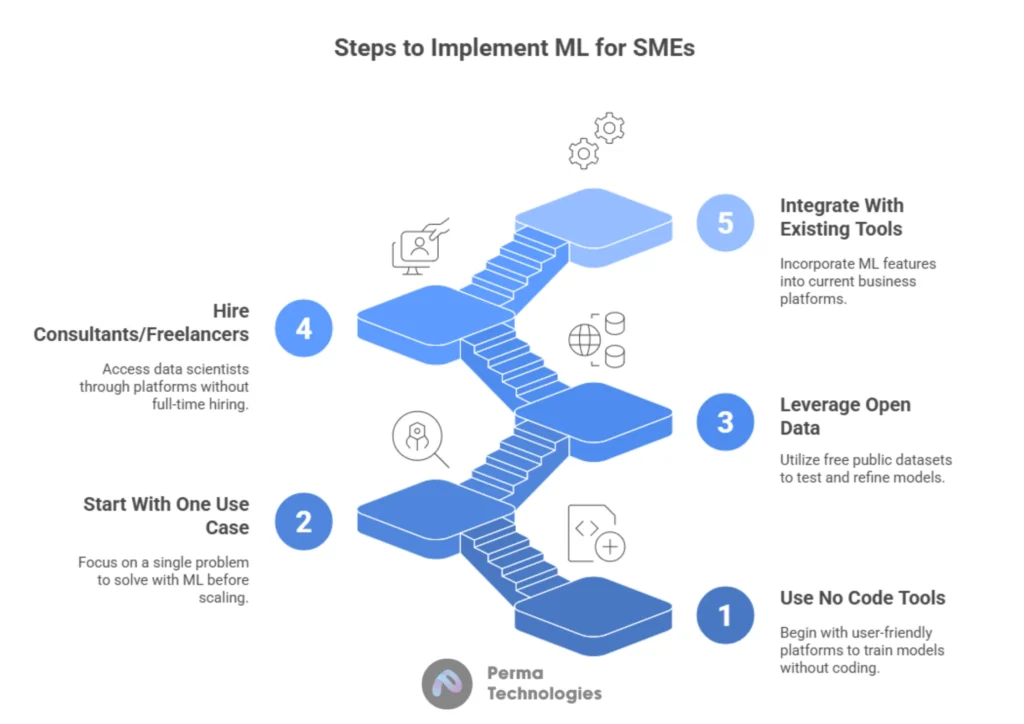
Getting Started Without Breaking the Bank
Here are practical tips for SMEs looking to get started with ML:
- Use No Code Tools First: Platforms like MonkeyLearn, DataRobot, or Google AutoML let you train models without writing code.
- Start With One Use Case: Choose a single problem like lead scoring or email classification to solve with ML before scaling.
- Leverage Open Data: There’s a wealth of free public datasets you can use to test and refine models.
- Hire a Consultant or Use Freelancers: Platforms like Upwork or Toptal give you access to data scientists without hiring full time.
- Integrate With Existing Tools: Many platforms (e.g., Shopify, QuickBooks, Salesforce) now offer built in ML features.
Final Thoughts
Machine learning isn’t just for Fortune 500 companies anymore. Small and mid sized enterprises are uniquely positioned to benefit from ML because they can move fast, experiment lean, and deploy solutions tailored to their specific business context.Whether you’re trying to predict customer behavior, optimize operations, or improve service delivery, there’s likely an ML solution ready to help. With the right use case and tools, SMEs can unlock new efficiencies, build smarter products, and grow sustainably in an AI powered world.

